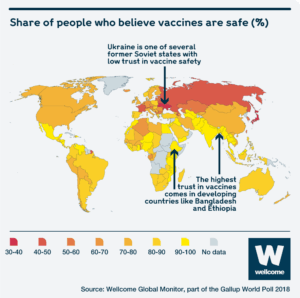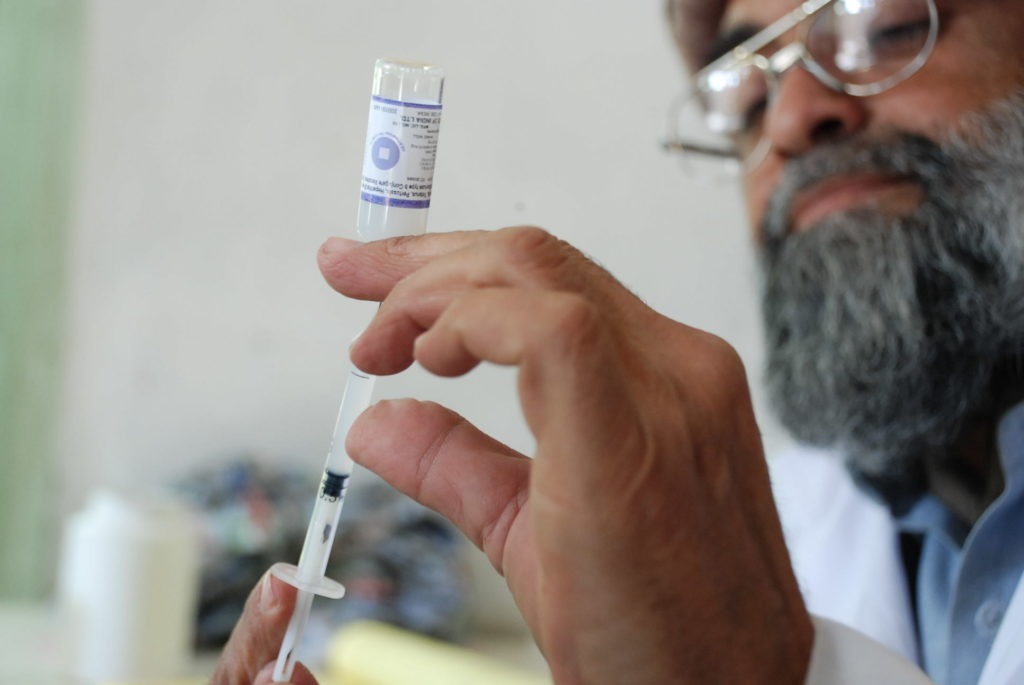A new global survey has found that 21% of Belgians do not think vaccines are safe.
Belgium ranked among the top countries with high percentages of people who distrust vaccines. The other countries that distrust vaccines include Iceland, Austria, and Switzerland.
The Wellcome Global Monitor 2018 is a global study to learn about people's attitudes about science and "major health challenges." To create it, Wellcome, a foundation that supports science and health research, teamed up with the American polling group Gallup to survey around 140,000 people worldwide.
The study also found that high-income regions are less likely to believe vaccines are safe than low-income regions.
According to findings, 72% of North Americans and 73% of Northern Europeans believe that vaccines are safe, while 59% of Western Europeans and 50% of Eastern Europeans believe they're safe.
In comparison, more than 90% of people in lower-income regions like South Asia and Eastern Africa said they think that vaccines are safe.

Credit: John Burns-Murdoch/Wellcome
However, there are several regions surveyed where people are unlikely to agree that vaccines are safe, but they do agree that vaccines are effective.
According to Wellcome, the biggest gaps in thinking vaccines are both safe and effective are seen in Western Europe — 59% safe, 77% effective — and Eastern Europe — 50% safe, 65% effective.
But the research also found that 92% of people worldwide at least somewhat agree that vaccines are important for children to have.
Researchers did have concerns regarding the number of people who think vaccines are important and herd immunity. Herd immunity occurs when a large percentage of the population is immune to a disease, thereby protecting the percentage that is not immune.
In some areas of the world, only about 60% of people thought vaccines were important. However, some diseases, like measles, require about 90% of a population to be vaccinated in order to prevent an outbreak of the disease. If only two-thirds of people are vaccinated, herd immunity cannot work.
The country with the highest scepticism around the safety of vaccines is France, where one in three people do not believe they are safe. The survey found these results were the same across several demographics in France, including age and gender.
Researchers said they saw an increase in French vaccine scepticism after a controversial influenza pandemic vaccination campaign in 2009. During the campaign, the World Health Organization was accused of being influenced by pharmaceutical companies.
The report also found that those who say they trust doctors and nurses the most about health information are more likely to think vaccines are safe.
Additionally, researchers say the rise of social media helped spread vaccine scepticism, and that Russian misinformation campaigns on social media also played a role.
The full Wellcome Global Monitor 2018 can be found here.
Sam Nelson
The Brussels Times

